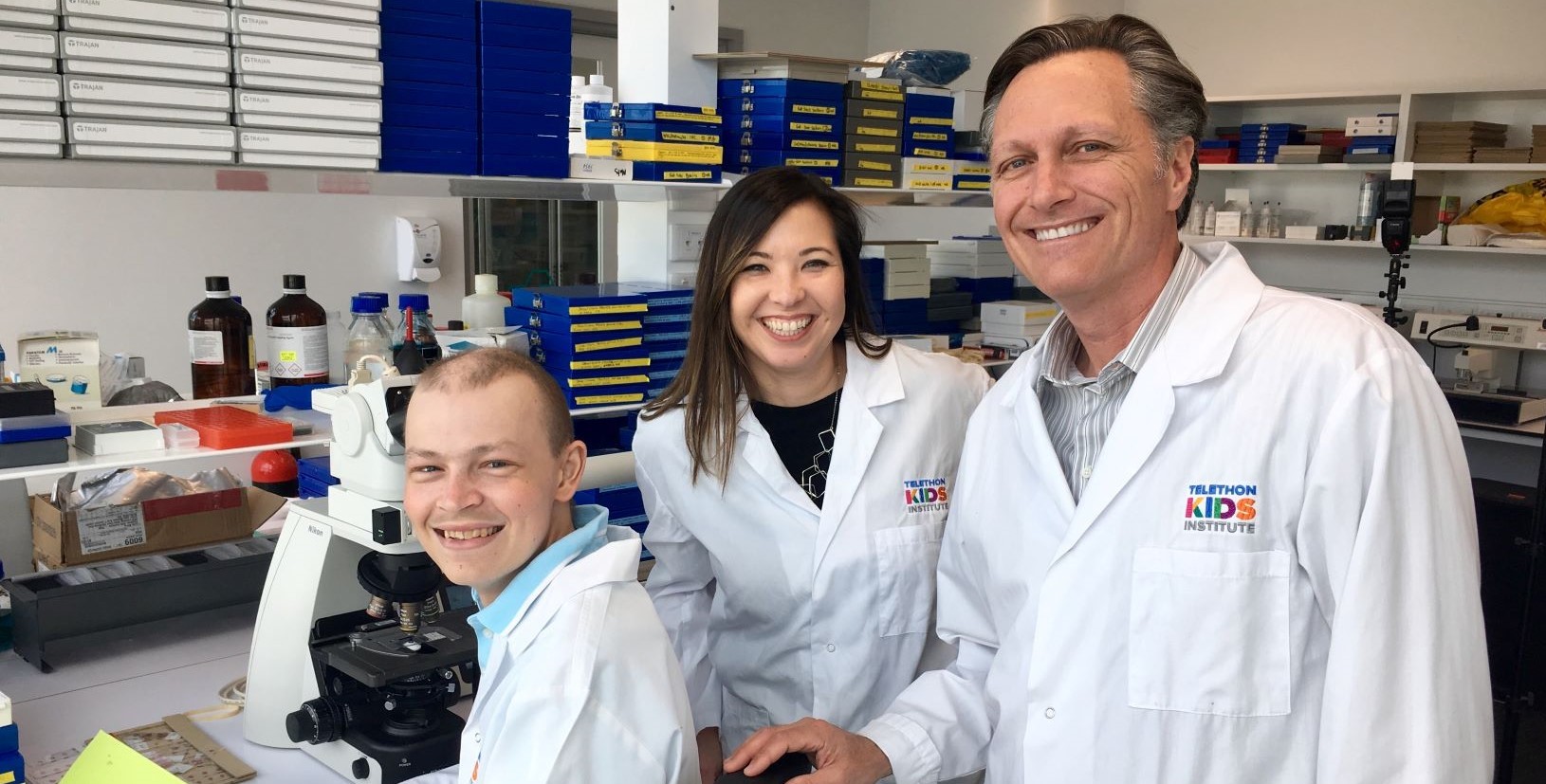Search
Research
Allograft outcome following repeat transplantation of patients with non-adherence-related first kidney allograft failure: a population cohort studyThe associations between causes of first allograft failure and acute rejection-related and non-adherence-related allograft failure following re-transplantation

CliniKids, the first stand-alone clinical service offered by The Kids Research Institute Australia, was launched in October 2019 and is already delivering benefits for families with children who are developing differently.

An international clinical trial led by The Kids Research Institute Australia Cancer Centre is trialling a drug which could increase cure rates for aggressive forms of childhood brain cancer.

The ORIGINS Project, a collaboration between The Kids and Joondalup Health Campus, is collecting data and biological samples from 10,000 families over 10 years. Its work is also giving participating families a valuable heads up on health issues.
Research
Linking the westernised oropharyngeal microbiome to the immune response in Chinese immigrantsHuman microbiota plays a fundamental role in modulating the immune response. Western environment and lifestyle are envisaged to alter the human microbiota with a new microbiome profile established in Chinese immigrants, which fails to prime the immune system. Here, we investigated how differences in composition of oropharyngeal microbiome may contribute to patterns of interaction between the microbiome and immune system in Chinese immigrants living in Australia.
Research
Meta-analysis of the neural correlates of vigilant attention in children and adolescentsVigilant Attention (VA), defined as the ability to maintain attention to cognitively unchallenging activities over a prolonged period of time, is critical to support higher cognitive functions and many behaviours in our everyday life. Evidence has shown that VA rapidly improves throughout childhood and adolescence until young adulthood and tends to decline in older adulthood.
Research
Influenza disease and vaccination in children in AustraliaOver the past decade, multiple initiatives have been implemented to strengthen influenza vaccination programs in Australia, with an increasing focus on children. In this article, we review these changes, the events that prompted them, and how they have influenced influenza vaccine uptake in Australia.
Research
Variation in nutrition education practices in SWEET pediatric diabetes centers-an international comparisonNutrition education is central to pediatric type 1 diabetes management. Dietary management guidelines for type 1 diabetes are evidence based, but implementation may be challenging and inconsistent. We describe variation in the practice of nutrition education across pediatric diabetes centers globally and explore associations with A1c and BMI.
Research
Barriers and Considerations for Diagnosing Rare Diseases in Indigenous PopulationsAdvances in omics and specifically genomic technologies are increasingly transforming rare disease diagnosis. However, the benefits of these advances are disproportionately experienced within and between populations, with Indigenous populations frequently experiencing diagnostic and therapeutic inequities. The International Rare Disease Research Consortium (IRDiRC) multi-stakeholder partnership has been advancing toward the vision of all people living with a rare disease receiving an accurate diagnosis, care, and available therapy within 1 year of coming to medical attention. In order to further progress toward this vision, IRDiRC has created a taskforce to explore the access barriers to diagnosis of rare genetic diseases faced by Indigenous peoples, with a view of developing recommendations to overcome them.
Research
Exploring quality of life in individuals with a severe developmental and epileptic encephalopathy, CDKL5 Deficiency DisorderCDKL5 Deficiency Disorder (CDD) is a rare genetic disorder caused by a mutation in the cyclin-dependent kinase-like 5 (CDKL5) gene. It is now considered to be a developmental and epileptic encephalopathy because of the early onset of seizures in association with severe global delay. Other features include cortical visual impairment, sleep and gastro-intestinal problems. Progress in clinical understanding, especially regarding the spectrum of functional ability, seizure patterns, and other comorbidities was initially slow but accelerated in 2012 with the establishment of the International CDKL5 Database (ICDD). Our aim was to use this data source to investigate quality of life (QOL) and associated factors in this disorder.
